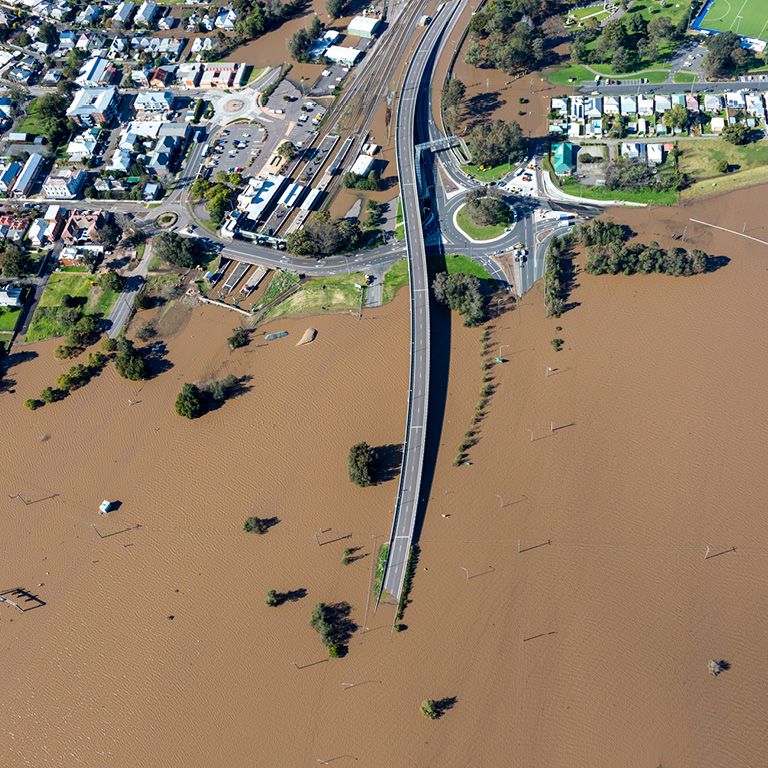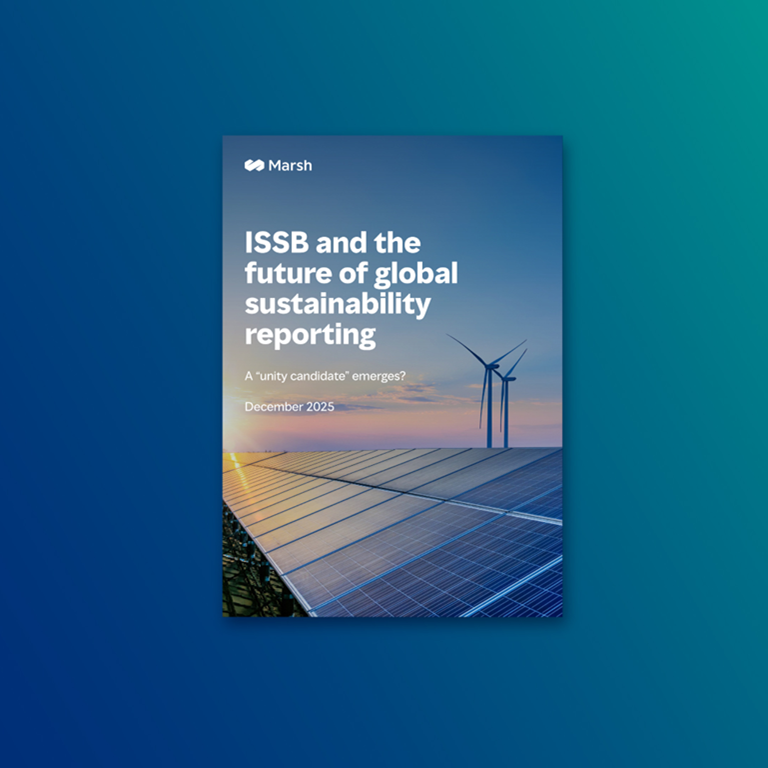
Amy Barnes
Head of Energy & Power, Head of Climate & Sustainability Strategy, Marsh Risk
-
United Kingdom
At Marsh, we empower organizations to achieve a resilient climate transition through a range of innovative insurance solutions and risk advisory capabilities. Explore our Transition, Adaptation and Carbon Market hubs below to learn more.

01/20/2026
Explore our hub to understand climate resilience and adaptation in the context of your business, and connect with one of our global or regional specialists to learn more.

01/15/2026
Organizations are increasingly concerned about the impact of weather-related events on their ability to secure affordable insurance coverage.

01/05/2026
Prepare for the future of sustainability reporting. Download the ISSB report to understand global standards, challenges, and how to enhance your organization's disclosures.
Climate and sustainability
Exploring the possibilities for our world ahead
Each business faces vulnerabilities unique to its day-to-day operations; however, climate change has accelerated several major areas of risk in every industry, including:
Companies will need to create a proactive risk management strategy and program that addresses each of these risks, as most will experience the impact of all three in the coming years.
Increasingly, insurers are assessing the sustainability (ESG rating) of their insureds and their commitments to transition as they look to reduce emissions in their underwriting portfolios. For some companies this may result in restricted access to risk transfer, while for others it could lead to improved terms. A further consequence is product innovation to support insureds to build back better following a loss and in recognition of new exposures.
No matter your industry, you may need to consider the following insurance implications:
Although the assets each organization must consider in its risk management approach to climate change vary significantly, a comprehensive insurance policy portfolio that includes the above coverages can help mitigate losses and address risk vulnerabilities as a whole.
ESG can be a key driver of growth as well as part of business resilience. Therefore, leaders across every industry sector are focused on sustainability initiatives to reduce risk and leverage opportunity. Today, ESG needs to be part of corporate strategy and be embedded in the business and operating model.
We can help you:
For today’s leaders, maintaining day-to-day operations, while making the transition to more sustainable processes, will prove critical to remaining profitable, keeping up with consumer expectations, and staying ahead of regulatory changes.
At Marsh, we can help you create a proactive risk management program to mitigate climate change risks, protect your assets, and invest for the future of your company and the planet.

Head of Energy & Power, Head of Climate & Sustainability Strategy, Marsh Risk
United Kingdom

Head of Climate & Sustainability Risk, Marsh
United Kingdom